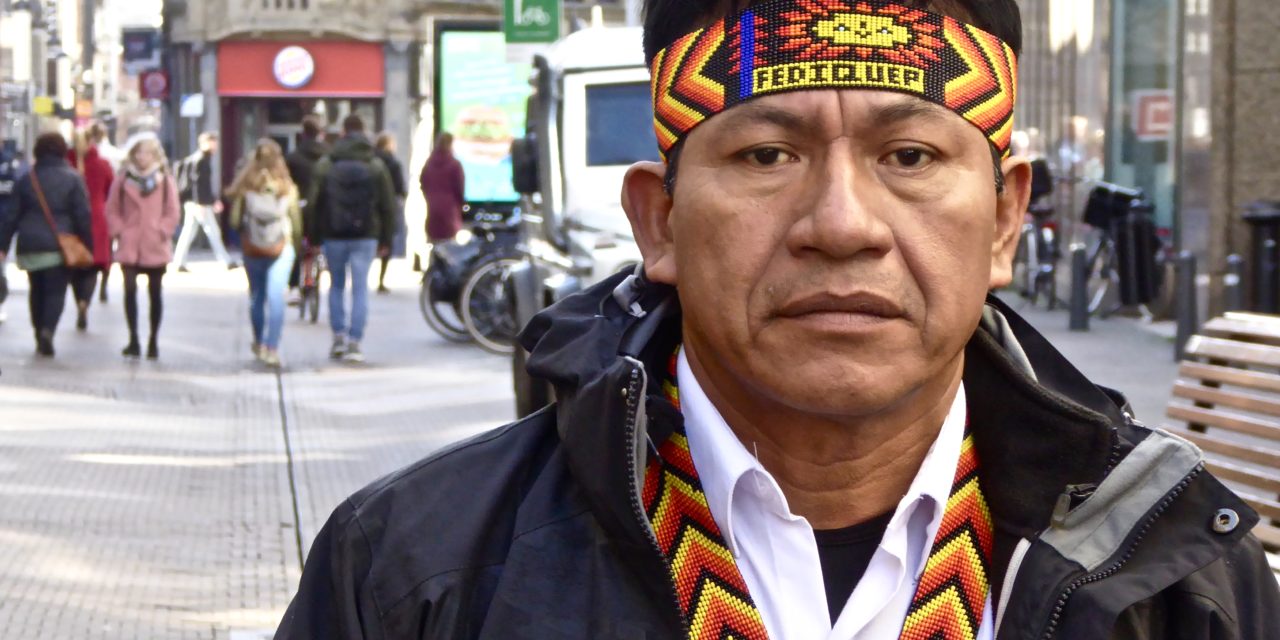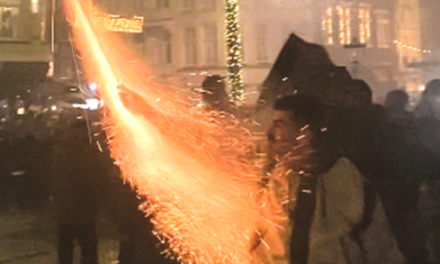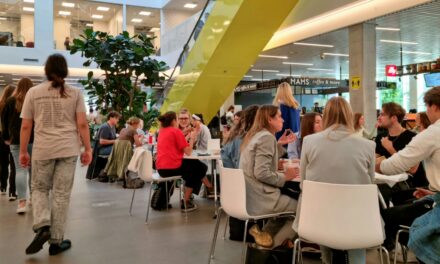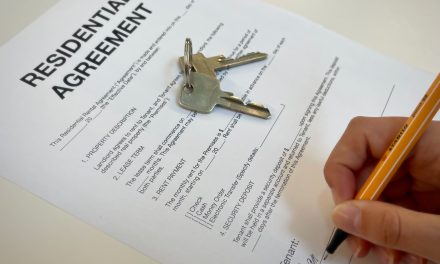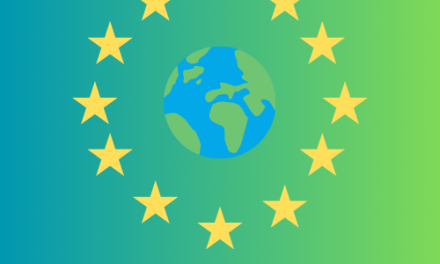Oil spills in de Amazon rainforest cause indigenous people to travel across the world seeking justice in international courts. Their territories in the Peruvian, Ecuadorian and Brazilian Amazon rainforest are contaminated by leaks of crude oil into the environment, polluting the water, plants and animals, and subsequently: people. The national governments have as of yet insufficiently changed legislation, leaving the indigenous no choice but to travel far and wide to file their complaints.
One such traveller is Aurelio Chino Dahua (50) from the northern Peruvian rainforest. For fifteen years he has been fighting PlusPetrol, the oil company operating in the vicinity of his Quechua-speaking village Loboyacu in the rainforest. Recently, Chino was in The Hague, where the International Court of Justice is located, to issue an OECD-complaint against oil firm PlusPetrol based in The Netherlands. This is the story of Chino, and many other indigenous leaders, seeking environmental justice far from their homes.
Chino:
“I come from a small village in the northern Amazon rainforest where I live with my wife and five children. We fish, we hunt and we build our own houses. But oil spills have released thousands of barrels of crude oil into our territories. And now, we are slowly dying.”
“I have travelled for two days by canoe to come to the nearest airport, from where I flew to Lima and then to Amsterdam. Here, based on the OECD-guidelines (guidelines by which all Dutch companies ought to oblige), I have issued a complaint against the Netherlands-based oil company PlusPetrol which is polluting our territories in the rainforest. If the Netherlands doesn’t take a stance pressuring the Peruvian government, nobody will, and contamination of the rainforest and my people will continue.”
For 50 years oil companies have been extracting oil from the Peruvian Amazon rainforest. Shell was also temporarily present there, searching for oil in the 1980’s. From the heart of the Amazon until the coastal area by Lima, a pipeline has been built to transport the crude oil. This pipeline, run by PetroPeru, started showing signs of disintegration in 2005 when the first major oil spills were detected. Since then, several have followed per year.
“Contamination is everywhere. In the fish we eat, the plants we gather and the water we drink. Indigenous people have high levels of lead and cadmium in their blood. It’s making us ill: we suffer from strange pains and diseases.”
“The international oil companies extract oil from our territory without compensating us. They pollute our living space and don’t clean up. We get nothing in return.”
“Since 2009 the Peruvian government has often declared parts of the Amazon a ‘national state of emergency’ because it is too contaminated. But little has changed since. The Peruvian state doesn’t punish the oil firms and corruption is a big problem in our country. Therefore we travel to where the companies are based. The Cayman islands, Panama, but also The Netherlands.
PlusPetrol is the oil company operating in the area of Chino’s village. Despite it being Argentinian, the official headquarters are located in Amsterdam due to attractive taxing rules. However, only one employee is registered as working in the headquarters.

Photo: Noah Moeys – Chino and the delegation of people helping with the complaints, including SOMO, Oxfam Novib and Amnesty International.
Chino isn’t the only indigenous leader traveling abroad to file complaints in international courts. Renato Pita Zilbert, spokesperson of PUINAMUDT (organisation representing the indigenous groups of the Amazon) coordinates four groups of indigenous peoples in Peru and has seen many travel to ask for justice. “Often, the people feel they are not being listened to in their own country. So the indigenous people are teamed up with NGO’s and this gives them the possibility of travelling,” says Pita. Previously, Chino has flown to Geneva, New York, Miami, Paris and London to discuss the situation in the rainforest.
“We do not see direct effect of traveling there, but it is the only way to pressure our own state to do something about it. We have tried for a long time just here in Peru, but it hasn’t worked. Contamination is still happening and we are still falling ill.”
